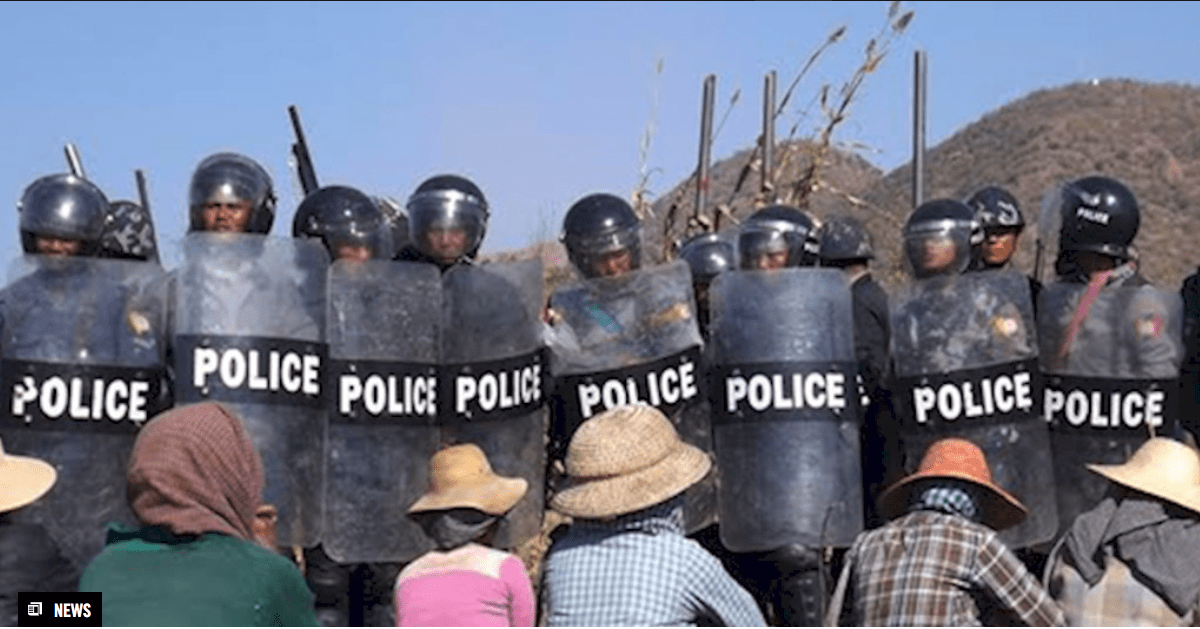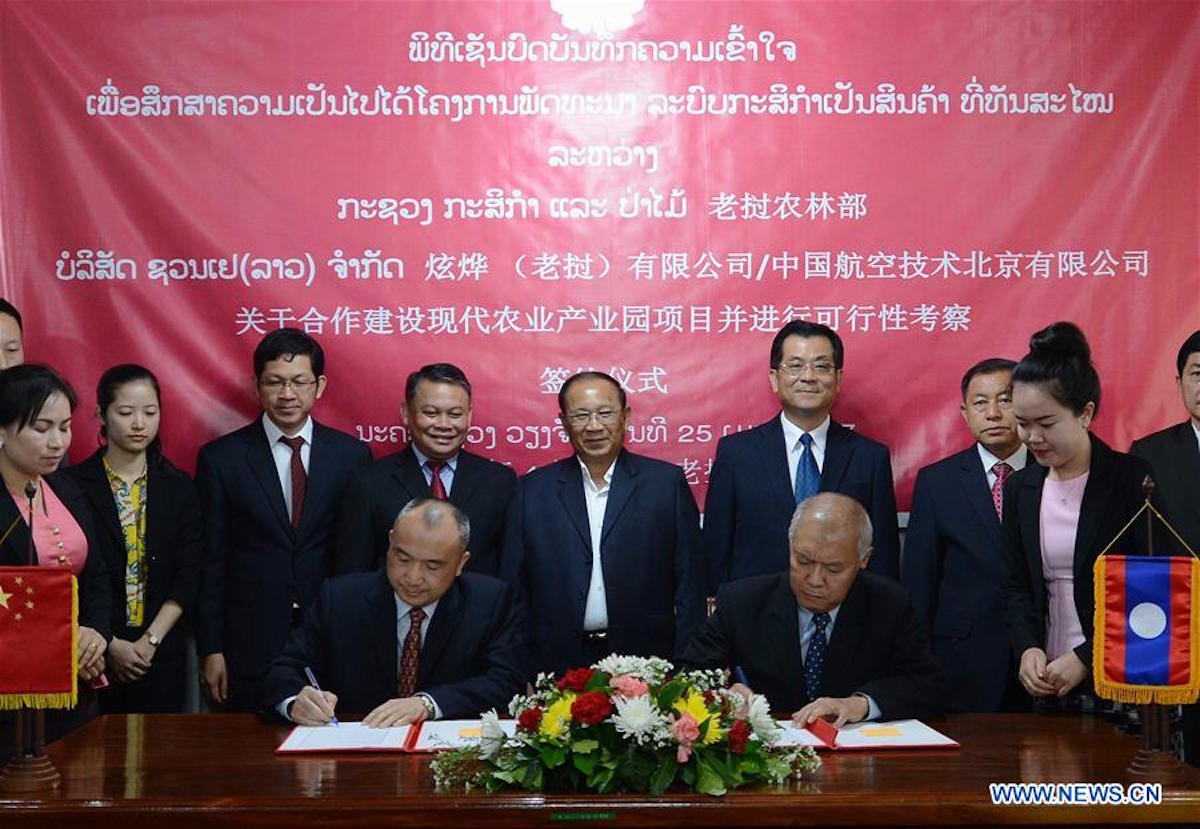Apple Computer, the wealthiest tech company on the planet, marked Earth Day 2017 with one of the most ambitious corporate social responsibility promises: vowing to stop mining the earth and start using 100 per cent recycled materials for its smart phone, tablets and computers. This comes months after fresh allegations that Apple’s supply chain is linked to human rights abuses in Myanmar’s mining sector, where corporate social responsibility too is now at work to eliminate such behavior—or is it?
On March 31st,, 2016 an independent candidate in Myanmar’s 2015 general election was sentenced to one year of hard labor. Myat Nu Khaing crime, being among 100 demonstrators outside China’s Rangoon Embassy in December 2014 seeking justice for the death of a villager shot during a protest against Myanmar’s controversial Letpadaung copper mine.
According to Amnesty International, this was just the latest in a string of human rights violations associated with protests at the mine operated by China’s Wanbao mining company, a subsidiary of state-owned Chinese arms manufacturer China North Industries Corp, in partnership with one of Myanmar’s two leading military conglomerates, Union of Myanmar Economic Holdings Limited. The attacks date back to November 2012 when security forces fired white phosphorous military smoke bombs into a protest camp causing severe burns to more than 100 people, most of them monks, some resulting in lifelong disabilities.
Such repression, however, did not find its way into the script of Wanbao’s video chronicling its corporate social responsibility efforts, released the same day as Myat Nu Khaing’s sentencing. Posted on Youtube, Myanmar Wanbao: A New Dawn, has generated more than 400,000 views. In it, Myanmar Wanbao officials reference a lack of social responsibility that led to unrest forcing the mine’s closure for more than three years. The video main theme, however, is: “Few companies make it back from this situation…Myanmar Wanbao did.”

The video highlights Myanmar Wanbao’s cooperation with a 2013 parliamentary commission investigation headed-up by Aung San Suu Kyi. Among the commission’s findings was that Wanbao could renew operations provided it addressed issues related land compensation and environmental protection measures, including undertaking appropriate environmental, social and health impact assessments.
However, as the Myanmar Times reports, “U Soe Hein, a member of Sein Yaung So Activities, a Mandalay-based environmental group, said he had contributed to research by the Myanmar Alliance for Transparency and Accountability, which said Wanbao had implemented only 20 per cent of the recommendations of the investigation committee, and much of its activity was just for show.”
This sentiment is similar to remarks Aung San Suu Kyi made regarding the government’s lack of enforcement of her committee’s findings in 2014, stating, “[The 2014 protest] erupted because they didn’t do what they had to do to put the recommendations into practice.”

For its part Myanmar Wanbao is promoting a slate of actions it has taken following the 2013 report to improve relations with local communities. As the Wall Street Journal reported in 2013, Myanmar Wanbao’s “Charm offensive” includes earmarking 2 per cent of the mine’s net profits for Myanmar Wanbao-led social responsibility projects, such as health care, education, drinking water and electricity. A US$2 million annual contribution will also be made to a fund for reclamation once the mine is closed down. The company also engaged the services of the strategic risk management advisory firm China-i, to help guide its communications strategy with Letpadaung communities, and China-I’s principals are featured in the recent video.

A review of Myanmar Wanbao’s social outreach efforts however, revealed several major weaknesses. Key among them says the Diane Tang-Lee of Manchester University, is the company’s engagement of “local people” being limited to local elites. “[Myanmar Wanbao] conveniently neglecting the fact that many local elites are not concerned about the needs of who they are supposed to represent. In some cases, they are even perceived as representatives of the company rather than the villagers, or worse, yet another wall that blocks communication between them,” says her report.
Early last year, Radio Free Asia reported that 200 Myanmar farmers were blocked by police from reaching Myanmar Wanbao’s offices. They were demanding compensation for lost farming revenue caused by the mine’s operation, which had been granted the previous year, but not for 2016. There’s also frustration due to promised water supplies not materializing. Moreover, the land grabbing that triggered the initial protests and mine closure has not been fully resolved.
Activist U Sai Kyaw Aye told the Myanmar Times last March that the total land area of the mine project was 7,878 acres, and no compensation had been offered in respect of 3,000 acres. “The villagers took the first payment out of fear. The villagers don’t want to sell their land. Wanbao is proceeding against the will of the people,” he said.
Last February, Myanmar’s parliament urged a review of last minute business deals undertaken by Myanmar’s previous administration. The deals included the permitting of Myanmar Wanbao to restart its operations at Letpadaung without properly reviewing Myanmar Wanbao’s compliance with the recommendations of Aung San Suu Kyi’s committee’s findings.
U Soe Hein, again speaking to the Myanmar Times, observed that, “I don’t think the company can continue if it accepts all the recommendations of the investigation committee.”
In response, Dong Yun Fei, a Myanmar spokesperson for Wanbao, told AFP that the company would start production under the new government “and I hope for a better future with them”. He added that there are “still some problems with local people” and it was up to the NLD (National League for Democracy) to quell opposition.
But this better future has yet to materialize, reported Amnesty International this past February. Their report states that thousands of families living near the mine still risk losing their homes or farmland as the operations expand, the threat of environmental disaster looms over an area prone to earthquakes and floods, and how the authorities continues to use repressive laws to harass activists and villagers opposed to the mine.
Accompanying the release of the report, Amnesty International’s Mark Dummett said, “Myanmar Wanbao continues to make claims about how it has consulted all affected people, but our research found that these claims are simply not true. The company seems to be more interested in public relations than in genuinely ensuring that the rights of the neighboring communities are respected.”
This Mekong Eye original is published under Creative Content licence and may be republished. Grateful if you can let us know if you republish: [email protected]





